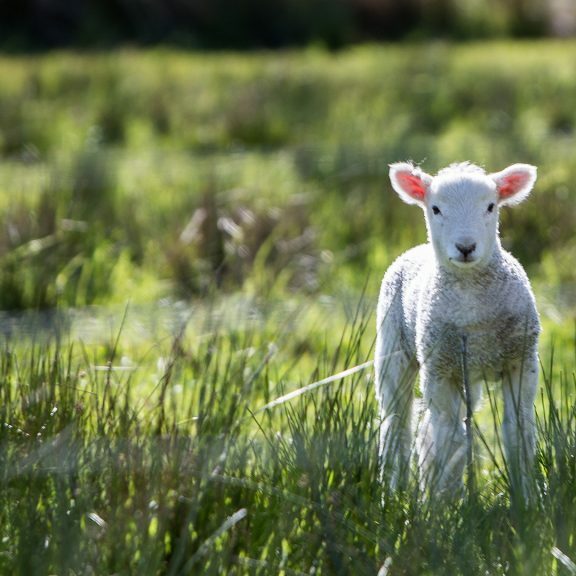March 28, 2024
Pastor Gunnar Ledermann
1 Corinthians 10:16-17
1 Corinthians 10:16-17
16 Is not the cup of thanksgiving for which we give thanks a participation in the blood of Christ? And is not the bread that we break a participation in the body of Christ? 17 Because there is one loaf, we, who are many, are one body, for we all share the one loaf.
Getting a meal for $1.50 seems too good to be true these days. Even a kids’ meal for $1.50 sounds too good to be true, but not so at the Costco food court where for $1.50 you get a hotdog and a drink. This has been a great blessing to many people, but some changes are coming. Although you need a membership to shop at Costco, the food courts have remained open to anyone, but there have been some issues with this policy, and it appears that some Costco locations will be restricting the food court to members only.
In the Old Testament, being an Israelite came with members only benefits. Our Old Testament reading from Exodus 12 picks up with the Israelites when God was explaining to Moses details for the Passover in connection with his tenth and final plague. When God sent the first few plagues, they affected the lands of both Egypt and Goshen, the land of the Israelites. Then, God began to make a distinction between Egypt and Goshen to show that he was working to deliver Israel and bring judgment on Egypt. The false gods of Egypt, even Pharoah who saw himself as a God, could not oppose the one true God. When God sent the final plague, he instructed the Israelites to sacrifice a lamb and paint its blood over the top and sides of the doorframes of their homes so that the Lord would not put their firstborn sons to death. The celebration of this Passover meal was to be held annually and we hear what was to be said about it from our Old Testament reading from Exodus 12, 26 And when your children ask you, ‘What does this ceremony mean to you?’ 27 then tell them, ‘It is the Passover sacrifice to the Lord, who passed over the houses of the Israelites in Egypt and spared our homes when he struck down the Egyptians.’” When celebrating this meal, the next generation was to be taught that the one true living God, the God of Abraham, Isaac and Jacob, sent the ten plagues to show his power in delivering his people Israel. Therefore, any other gods were to be rejected; there was to be no creating of, bowing down to, worshipping, sacrificing or holding festivals to idols.
When God’s people turn to other gods, they risk losing the members only benefits. In the verses just before our New Testament reading from 1 Corinthians 10, Paul used historical events from Israel’s past to address the Corinthians’ idolatry. Paul taught that though all of Israel had been delivered from Egypt and kept alive in the wilderness by the preincarnate Christ, their dead bodies were scattered across the wilderness, rather than making it to the promised land because they turned to idolatry and pagan revelry. The Corinthians risked a similar fate because they were participating in the celebration of the Lord’s Supper or communion and idol feasts. Paul exposed the danger of idolatry teaching that although an idol is nothing but a stone, precious metal or piece of wood, there are demons behind them, so idolatry is indirectly demon worship. Paul exposed their hypocritical sin of thinking that it is possible to participate in idol feasts, worship and celebrations, while also celebrating the Lord’s Supper.
Like the Corinthians, we need our hypocritical idolatry exposed. Although we have been baptized into God’s household and gathered at his table to receive the forgiveness of sins through the Lord’s Supper, we have participated in other gatherings that do not give us life. The names of the idols and feasts that tempted the Israelites and Corinthians have changed, but they are not gone. If you want to be able to identify what a modern equivalent of pagan revelry or an idol feast, then the criteria Paul listed in Galatians 5 is helpful, 19 The acts of the flesh are obvious: sexual immorality, impurity and debauchery; 20 idolatry and witchcraft; hatred, discord, jealousy, fits of rage, selfish ambition, dissensions, factions 21 and envy; drunkenness, orgies, and the like. If there is a celebration in which these acts are present or being celebrated, or if there is a celebration for a person who promotes these, then participation in them would not fit with the new life you have been given in Christ. Participation in celebrations characterized by sin harm our faith, harm our reputation, harm the reputation of Christianity, put obstacles in the path of Christians and unbelievers, and pollute the body of Christ. For all these sins, we ought to feel the unnatural communion of participating in those celebrations and then coming to commune with God and with one another as Christians. It is the embracing of sin that causes us to feel guilty and unwelcome. Sin even causes us to avoid and despair of taking the Lord’s Supper.
Our Lord Jesus gave us his Supper to forgive our sins. The Lord’s Supper is not for the unrepentant who arrogantly hold on to the worldly. This meal is for those humbled by God, who see their sins and whose eyes have been opened to see that in this meal our sins are taken away. In our Gospel reading from Mark 14, we are reminded of what we receive in the Lord’s Supper, 22 While they were eating, Jesus took bread, and when he had given thanks, he broke it and gave it to his disciples, saying, “Take it; this is my body.” 23 Then he took a cup, and when he had given thanks, he gave it to them, and they all drank from it. 24 “This is my blood of the covenant, which is poured out for many,” he said to them. Participation in the Lord’s Supper means receiving the bread and wine, and body and blood of Christ giving us the blessings of the covenant. The blessings of that covenant are given in Hebrews 9, 15 For this reason Christ is the mediator of a new covenant, that those who are called may receive the promised eternal inheritance-now that he has died as a ransom to set them free from the sins committed under the first covenant. The new covenant is forgiveness, salvation and eternal life in heaven. Paul’s point is that all who participate in the Lord’s Supper are united with Christ and receive these blessings as Paul wrote in 1 Corinthians 10, 16 Is not the cup of thanksgiving for which we give thanks a participation in the blood of Christ? And is not the bread that we break a participation in the body of Christ? You are welcomed to the Lord’s Supper because Christ gave up his body and blood as the payment for your sins. He is the price paid to give you a meal that gives eternal blessings and life. With the blessings you receive from this meal, there is no good thing that has been left out to go looking for somewhere else. This meal has all you need when you are weighed down by guilt and sin. It is the table you belong at as a child of God.
In addition to communion with Christ, we commune with one another in the Lord’s Supper. Paul went on in 1 Corinthians 10 to write, 17 Because there is one loaf, we, who are many, are one body, for we all share the one loaf. When we share in the one loaf of the Lord’s Supper, we come together as one body who share the same faith. God has called us and made us into his one body so that we agree about who the one true God is and what he has done for us. So, we are careful about who we participate with when we gather for communion. We are careful to avoid communion with someone or a group until we confirm that we have the same faith. In this way, we look forward to enjoying sharing together in the blessings of communion where again we also commune with our God because Jesus has removed the sin that separated us.
It is good to remember too that Paul is not going so far to say that because we commune together as believers, we must avoid every other gathering of people in this world. Paul did not tell the Corinthians to avoid all of society, only to avoid the idol feasts and pagan activities. The Corinthians and all Christians are called to point those lost in idolatry to the one true God. Jesus serves as a model to us because he was questioned for eating with sinners, and his response is recorded in Mark 2, 17 On hearing this, Jesus said to them, “It is not the healthy who need a doctor, but the sick. I have not come to call the righteous, but sinners.” Jesus did not attend idol feasts, but he would eat with sinners. He did not indulge in, excuse or affirm the sinners’ lifestyle. Instead, he was the mediator of a new covenant, who forgave their sins and called them to lead a new life of repentance. And he also did all of that for you.
The Lord’s Supper is not a cheap meal, but one of unparalleled value. So, for us participation in things resembling the idol feasts of the past harm us, while participation in the Lord’s Supper heals us with Jesus’ body and blood for the forgiveness of our sins. And as we distinguish between what harms and what heals, we get to teach others trusting God to call them to faith and to share in the blessings God gives us in the Lord’s Supper. Give thanks when you commune as one body of the one loaf avoiding the false loaves. Amen.




